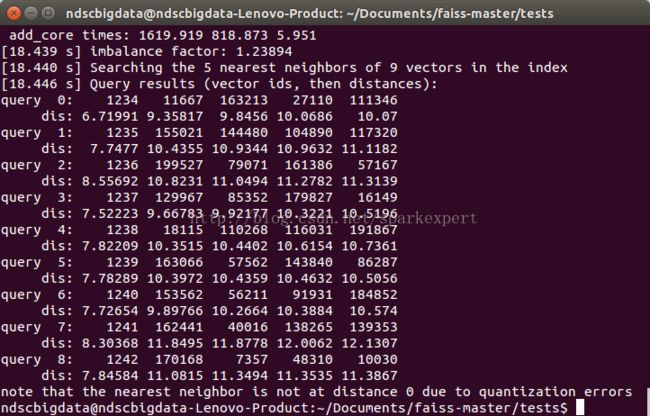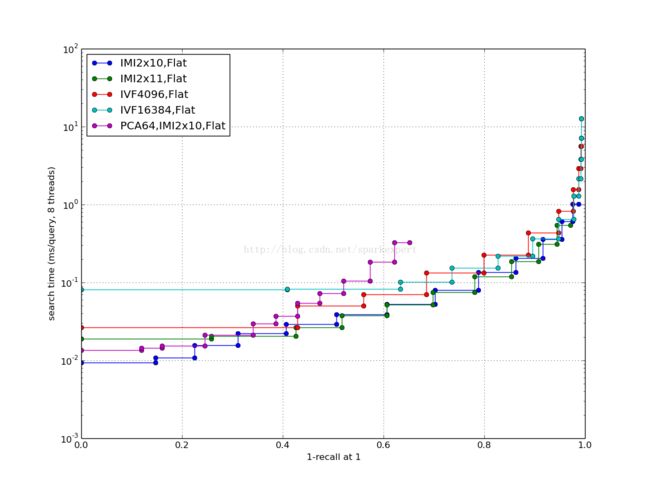facebook faiss的安装测试
Faiss 是由 Facebook AI Research(FAIR)开发的一个用于有效的相似性搜索(similarity search)和稠密矢量聚类(clustering of dense vectors)的库。它包含了在任何大小的向量集合里进行搜索的算法,向量集合的大小甚至可以达到装不进 RAM。它还包含了用于评估和参数调优的支持代码。Faiss 是用 C ++编写的,带有 Python / numpy 的完整包装。其中最有用的一些算法是在 GPU 上实现的。
针对这个开源的好东西,非常想测试一下,于是从开源地址:https://github.com/facebookresearch/faiss下载了源码进行查看和编译
主要安装过程参照github上faiss的安装文档,这里记录一些安装时遇到的问题。
1.
Faiss is compiled via a Makefile. The system-dependent configuration
of the Makefile is in an include file, makefile.inc. The variables in
makefile.inc must be set by hand.
在faiss-master根目录下复制修改后的makefile.inc文件,其中cuda使用的是8.0版本makefile.inc must be set by hand.
2.To check that the link flags are correct, and verify whether the
implementation uses 32 or 64 bit integers, you can
make tests/test_blas
and run执行test_blas是会打印出error,但是这个程序中直接打印出来的,并没有进行条件判断,因此运行是成功的./tests/test_blas
3. Once the proper BLAS flags are set, the library should compile
smoothly by running
make
A basic usage example is in tests/demo_ivfpq_indexing tests/demo_ivfpq_indexing
tests/demo_ivfpq_indexing
其中对索引在1234-1242的9个向量搜索其最近邻邻居,最近的应该是它本身,distance应该为0,但是由于量化误差,导致距离不为0.
4.
Real-life test
--------------
The following script extends the demo_sift1M test to several types of
indexes:
export PYTHONPATH=. # needed because the script is in a subdirectory
python python/demo_auto_tune.py
执行高亮语句前,需要在faiss-master的根目录下创建tmp目录,不然在最终的写入时会报错。写入tmp中的图片如下:python python/demo_auto_tune.py

再看了下FAISS原理,Faiss 是围绕一种存储了一个向量集的索引类型(index type)而构建的,并且提供了一个使用 L2 和/或点积向量比较在其中进行搜索的函数。一些索引类型是简单的基线,比如精准搜索。大部分可用的索引结构都对应了与以下方面的权衡:
-
搜索时间
-
搜索质量
-
每个索引向量所用的内存
-
训练时间
-
无监督学习时对外部数据的需求